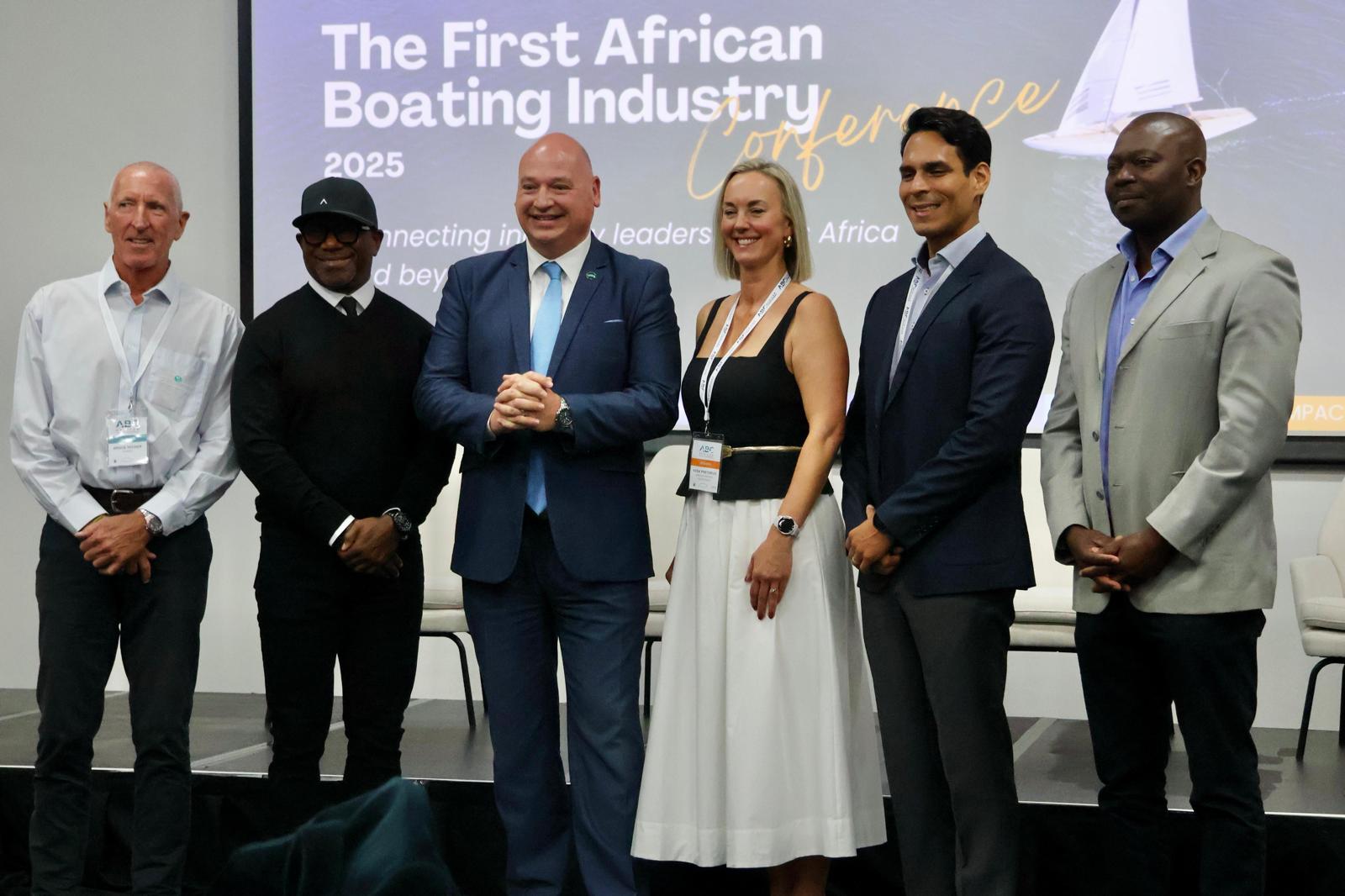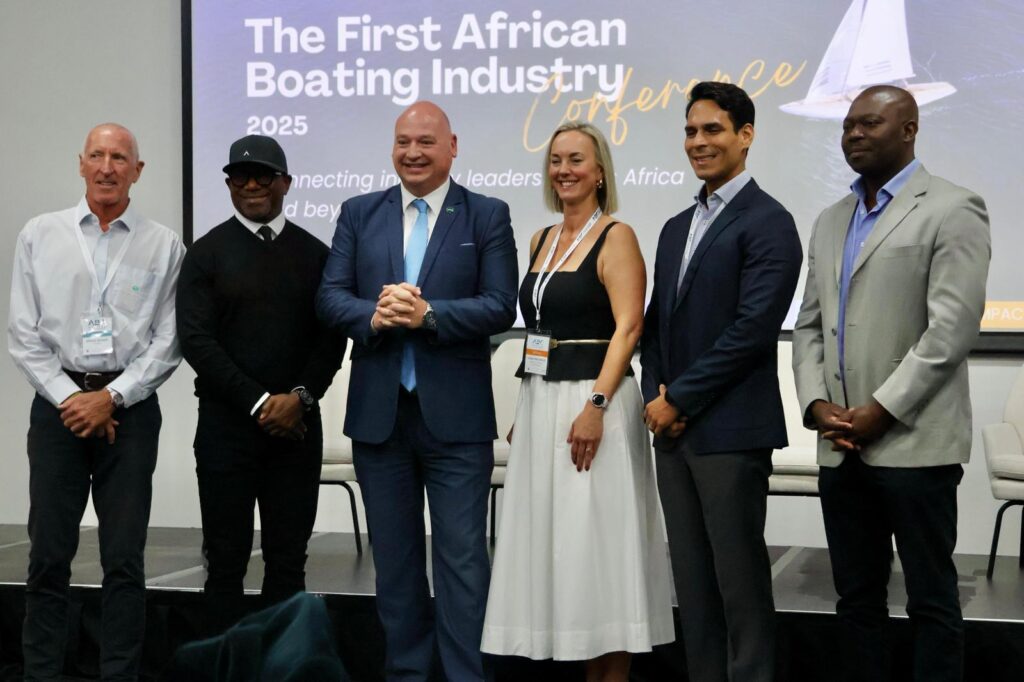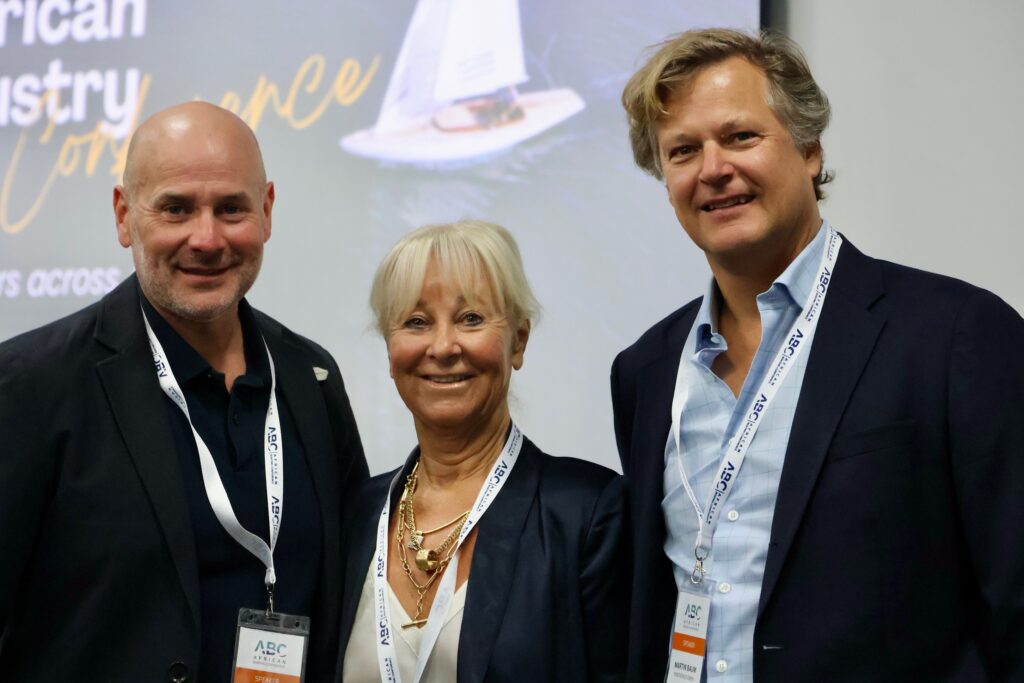
Boating industry grapples with effects of US tariffs at inaugural African Boating Conference
Tuesday 21 October, Cape Town: The challenges – and opportunities – US tariffs present for the local boating sector were a prominent theme at the inaugural African Boating Conference in Cape Town this week.
The two-day event at the V&A Waterfront brought together boat-builders, maritime media, and other roleplayers from the local, African and international industry.
Speaking at the event on Tuesday 21 October, Mayoral Committee Member for Economic Growth Alderman James Vos highlighted the importance of the sector in the City of Cape Town’s economic strategy but noted that the impact of US tariffs required creative thinking from both government and the industry.

“The city’s boat building capability and capacity is an important story – it’s no small hobby. Nationally, the building of ships and boats sector employed 3 780 full time equivalent jobs by March 2024 with Cape Town hosting about 65% of those jobs over a nine-year period. In terms of exports, in 2024, R4.3-billion worth of Cape Town-made ships, boats and floating structures were ordered by foreign clients,” he said.
Diversification as a mitigation strategy
However, Alderman Vos said the local industry faced a major challenge with the recent enactment of a 30% US tariff on South African products. In four of the last five years, the US has been the dominant export market for Cape Town’s boats, accounting for 30% of the city’s total marine vessel exports in 2024.
“We must act immediately and decisively to mitigate the effects of this tariff. We must diversify our export markets and seek out the opportunities of trade agreements such as the Africa Continental Free Trade Area,” said Vos.
“We can also further increase jobs by growing local suppliers for components such as engines, electronics, and composites. And investors, boatbuilders, tertiary institutions, and government agencies need to sit at the table regularly and align on how to address industry development bottlenecks such as skills shortages or manufacturing processes.”

A global issue
Ed Slack, Editor in Chief of International Boat Industry, gave global context to the topic: “The industry is prone to boom and bust cycles. In 2024 the election of [US President Donald] Trump brought a mini boom, but trade tariffs changed everything. The US is half the world’s market for boats – the “epicentre” of the boat market – and the tariffs have been a nightmare for EU manufacturers importing to the US.”
Slack noted that, as a consequence, EU manufacturers were increasing their focus on new markets such as the Middle East, Asia and Mexico.
Focus on future-proofing
South African industry players such as Ullman Sails agreed that the introduction of tariffs had forced them to adjust strategy.
“We are undoubtably in a disruption phase. The impact of the tariffs has put the focus on future-proofing our businesses – creating diverse markets and looking at where we produce,” said Michael England, CEO of Ullman Sails International during a panel discussion entitled “Africa’s Economic Outlook: Opportunities and Challenges”.
It was a sentiment underscored by Stephan Claasen, FNB Business Head: Western Cape, who stressed that although there was a great deal of global uncertainty, a macro view of previous economic shocks showed recovery can happen faster than expected, and often provided opportunities for businesses to reorganise.
“Trump and tariffs are disrupting the traditional way of doing things. He’s going to create new opportunities, even if they’re not where you expect … keep your powder dry so that you’re ready to pivot,” he said.
A first for leisure marine industry
The African Boat Conference is the first recreational B2B event for the leisure marine industry.
“Cape Town is the hub for manufacturing and yachting activities in South Africa, and with the proactive government it seemed the natural choice to hold the inaugural event in the city,” said Veda Pretorius, African Boating Conference Director.
“Much of the discussion around the “Blue Economy” focuses on fishing, shipping and commercial activities. While there is significant overlap, especially in South Africa, the leisure marine industry has different requirements and challenges which require engagement and collaboration – especially if it is to fulfil the potential of being a key economic driver in the country and the continent.”
Categories
Copyright African Boating Conference 2025 | All rights reserved
